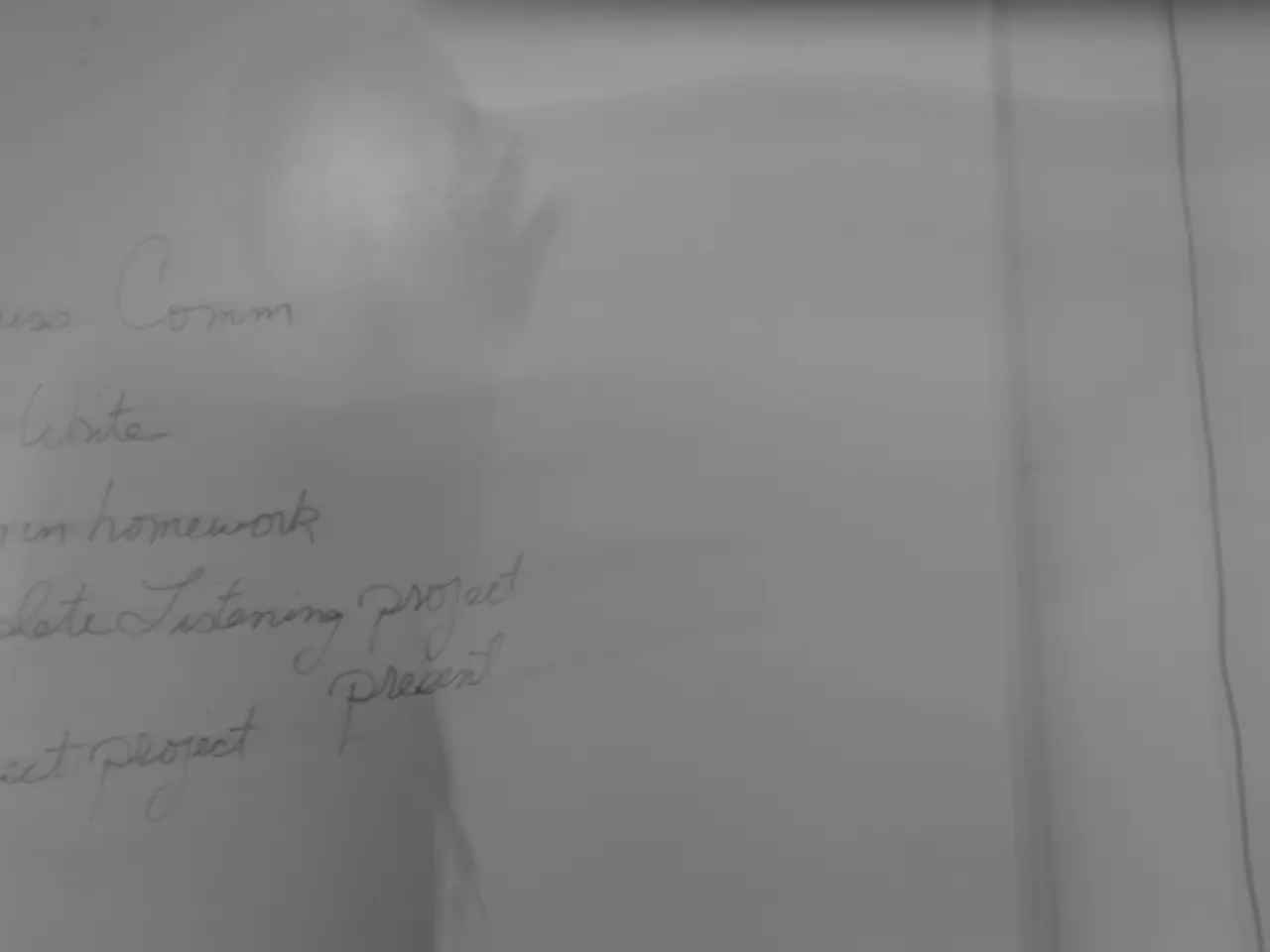Trump's Trade Agreement and the Unfulfilled Honeymoon of Merz
German Chancellor Friedrich Merz is grappling with a series of significant challenges as he navigates the complexities of European politics and the global economy.
The U.S.-European Union trade deal, announced on 27 July, has been considered a heavy defeat for EU negotiators. The deal, which includes a broad 15% tariff across most exports and commitments to spend hundreds of billions of dollars on US energy products and armaments, has raised concerns for Merz. He has warned that these tariffs will "cut to the bone" and emphasized the need for EU unity to resist these protectionist measures.
The trade deal poses a severe threat to Germany's export-driven economy, with the U.S. being Germany's primary trading partner. Merz's government is seeking solutions, but a quick resolution before the summer recess appears unlikely. The chancellor has also expressed concern about the potential damage to the German economy, stating that it could be "considerable."
Merz's coalition is also facing turmoil. Just over two months into his chancellorship, his government is embroiled in efforts to overhaul social security reform, but the process is challenging, especially given some coalition disagreements. The CDU/CSU's standing remains under pressure, with the party currently polling neck-and-neck with the extreme right Alternative for Germany (AfD).
Furthermore, Merz is facing an uphill coalition battle with the SPD over the appointment of two SPD nominees for the constitutional court. The chancellor and his party want to cut spending by allowing asylum seekers to apply for work and putting more pressure on unemployed people to find jobs, but are facing SPD resistance.
In addition to these domestic challenges, Merz also has to manage the complex dynamics of European and Franco-German cooperation under slow EU reform and geopolitical challenges. Merz maintains a close working relationship with French President Emmanuel Macron and emphasizes European cooperation, including on defense and migration. However, he has been critical of the EU’s bureaucracy and slow pace of reform, which could cause friction with European partners.
The reaction to the trade deal is more hostile in France than in Germany, potentially causing discord between Paris and Berlin. Policy-makers at the European Central Bank may consider a further quarter-point interest rate cut due to the trade deal. Doubt exists about estimates that gross domestic product could rise as much as 2% in 2026.
Despite these challenges, Merz has received support from the private sector. His private sector vows to invest €631bn in coming years. This follows a row over their expression of controversial left-leaning positions on issues such as abortion and mandatory vaccinations.
In summary, Merz must navigate the economic fallout from U.S. tariffs, a politically fragile coalition with weak poll ratings, and the complex dynamics of European and Franco-German cooperation under slow EU reform and geopolitical challenges. The chancellor's ability to manage these challenges will be crucial in shaping Germany's future and its position within the European Union and the global economy.
[1] BBC News. (2022, July 29). Germany's Merz warns of 'considerable damage' from US trade deal. Retrieved from https://www.bbc.co.uk/news/world-europe-62248219
[2] The Guardian. (2022, June 20). Friedrich Merz: the German chancellor who wants to balance socialist and conservative policies. Retrieved from https://www.theguardian.com/world/2022/jun/20/friedrich-merz-the-german-chancellor-who-wants-to-balance-socialist-and-conservative-policies
[3] Deutsche Welle. (2022, July 29). German Chancellor Merz's 'difficult summer' begins. Retrieved from https://www.dw.com/en/german-chancellor-merzs-difficult-summer-begins/a-61797630
- The global economy is witnessing the ramifications of the US-EU trade deal, a loss for EU negotiators that imposes a 15% tariff on most exports and requires hundreds of billions in investment in US energy and armaments.
- Chancellor Merz has voiced concerns about the potential damage to the EU, highlighting the tariffs as ones that could "cut to the bone".
- Germany, with the US as its primary trading partner, faces a substantial threat to its export-driven economy due to the trade deal.
- Rapid resolution before the summer recess seems unlikely for Merz's government, which is working to counteract the deal's effects on the economy.
- The chancellor himself believes the economic impact could be "considerable".
- Merz's coalition is grappling with internal turmoil, as they attempt to overhaul social security reform and face disagreements within the coalition.
- The CDU/CSU's standing is under pressure, currently polling neck-and-neck with the extreme right Alternative for Germany (AfD).
- Appointing two SPD nominees for the constitutional court is proving to be a challenge as well, with Merz and the SPD disagreeing on spending cuts and job requirements for asylum seekers and the unemployed.
- European and Franco-German cooperation under slow EU reform and geopolitical challenges is another obstacle that Merz must navigate.
- He maintains a close working relationship with French President Emmanuel Macron, emphasizing European cooperation on defense and migration.
- However, Merz's critique of the EU’s bureaucracy and slow pace of reform may cause friction with European partners.
- The reaction to the trade deal is more hostile in France than in Germany, potentially creating discord between Paris and Berlin.
- European Central Bank policy-makers may consider an additional quarter-point interest rate cut as a result of the trade deal.
- Doubts persist about predictions that gross domestic product could rise as much as 2% in 2026.
- Merz has received support from the private sector, with industry leaders promising to invest €631bn over the coming years.
- This comes following a row over their expression of controversial left-leaning positions on issues such as abortion and mandatory vaccinations.
- Merz's ability to manage the economic fallout from U.S. tariffs, a politically fragile coalition, and the complexities of European cooperation will impact Germany's future.
- AI insights can be crucial for German businesses in understanding the economic implications of the trade deal and navigating future trade policies.
- Finance data on international trade can provide valuable insights into the impact of tariffs and potential shifts in investment strategies.
- Investment in education and self-development, such as learning about personal growth, mindfulness, and career development, might help individuals adapt to a changing job market due to the trade deal.
- Migration data can inform policies on welcoming skilled workers from other countries, thereby bolstering Germany's workforce and economy.
- Economic insights can guide policymakers in crafting strategies to offset the negative effects of the trade deal on the German economy.
- Public policy initiatives that prioritize job creation, education, and skills training may help mitigate unemployment during economic downturns.
- Understanding the economic impacts of tariffs can aid policymakers in formulating effective trade legislation.
- Real-time data on car accidents, fires, and other accidents can assist in formulating policies to minimize these incidents and ensure public safety.
- Learning about policy-and-legislation and effective goal-setting can empower individuals to engage in productive political activism.
- Keeping up with general news on the trade deal can help politicians make informed decisions, while also encouraging informed and engaged citizens.
- Crime-and-justice data can reveal trends in illegal activities and assist in devising strategies to improve public safety.
- Lifelong learning, continuous skills training, and sports can contribute to personal growth and professional development.
- insights from sports analysis, such as those from soccer, football, basketball, baseball, hockey, golf, racing, mixed martial arts, tennis, and European leagues, can provide lessons on productivity, teamwork, and resilience, applicable to various aspects of life and career.







